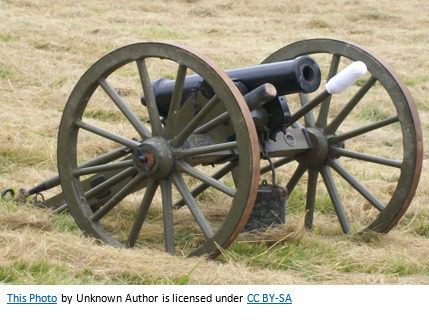Simplified Strategy Part 2
In the first blog on simplified strategy we learned the first four steps to use when starting research. This blog will focus on the last four steps (5 - 8) which generally involve more in depth research. These steps are not necessarily in order, though, since much depends on the time period, place and research needs. The last four strategies are: histories, military records, immigration, and court records.
FIFTH One US research stone to not leave unturned is histories, particularly county and sometimes town histories where your ancestor lived. These often include biographies of those who lived in the area for a length of time and there may also be personal histories found, as well. A good place to look for histories is the Family History Library catalog at FamilySearch.org. In the box for “place” type the name of the county or town where your ancestor lived. When the topics appear, click on “History” and see if there are any county or town histories. While in FamilySearch.org, go to the “Books” section which is found under “Search.” In this area you will find a collection of family and local histories digitized by the Family History Library as well as from partner libraries.
Often county histories can be found at books.google.com and may be digitized. The Internet Archive is a valuable resource and also has older histories. For biographies, you might try a google search for the ancestor in question and include the name of the place where he or she lived. A general search for the ancestral name on Ancestry.com may also reveal hidden articles on your ancestor.
As can be seen, there are a variety of places to search for family and local histories.
SIXTH Military records can provide history as well as vital information regarding a soldier and his or her family. In the United States the main wars before 1900 include: Revolutionary War, War of 1812, Mexican War, Civil War, Spanish American War, and Indian Wars. The main two types of records are the service records and pensions. Service records contain interesting facts regarding when the soldier mustered in and out, when he received pay, and possible injuries or absences. Pension records generally contain valuable personal and family information and may include dates of marriages, births of children, where the soldier lived since his service and more.
To learn about military records in the United States, go to the United States Military Records section at the FamilySearch Wiki. This has a “Beginner’s Corner” as well as how to get started and where records are located. In the FamilySearch Wiki you will also find pages describing military records for other countries, as well.
Ancestry.com has a section devoted to military records which contains indexes to records of various wars. And, last but certainly not least, Fold3.com is a website devoted to military records and is a valuable resource. Ancestry.com and Fold3.com are pay websites, but are free to use at any Family History Center.
If the record is not available through any of the above sources, there are researchers near the National Archives in Washington DC who may be willing to find and copy them quickly and inexpensively.


SEVENTH One of the main goals for most Americans is to learn from which city or village their ancestors originated. Hopefully, the previous steps discussed will provide clues as to where your ancestors specifically came from. If not, a good step is to look into immigration records. Again, as with military records, a good place to start is with the FamilySearch Wiki under United States Emigration and Immigration. There you will find a general history of immigration in the United States as well as a “Beginner’s Corner” which explains what records are available, where they can be found and accessed, as well as search strategies. One important item to note is the difference between the two terms; emigration means leaving a country and immigration means entering a country. For example, if a person is leaving England to live in another country they are emigrating from England. If they are entering the United States to live they are immigrating into the US.
Some of the records to find will be ship passenger lists, naturalization records, border crossings, and alien registration files. These will be explained in the FamilySearch Wiki, but many of these are indexed and are found in FamlySearch records (Migration and Naturalization) as well as in an excellent Immigration database Ancestry.com.
EIGHTH One of the most used record groups when delving into researching an ancestor are court records. These may contain vital records, but also include land, probate, tax and court records. In the United States, these records are most often found on a county level and the Family History Library has most of these microfilmed and available through their catalog. Many have been digitized and even indexed. Ancestry.com is adding these records to their collection, as well. To find them, go to the state of interest, and learn what records are available for that state.
To learn more about available records for each county in the United States, go to the FamilySearch Wiki, find your county of interest and there will be sections devoted to each of these types of records including available online resources. This is a good place to learn about court records available in other countries, as well. For example, England and Canada have excellent pages describing records and their availability.

When encountering a difficult problem, the following two suggestions are essential:
- Make a time line of all information known about the ancestor in question.
- Create a FAN club. This is a list of all Friends, Associates, and Neighbors of your ancestor. Then, research those people, particularly those with the same surname living in the same vicinity.
Price and Associates has a team of experts to help break down your brick wall, especially if you try the strategies given without success. We are always happy to assist you with your research needs.
Diane
